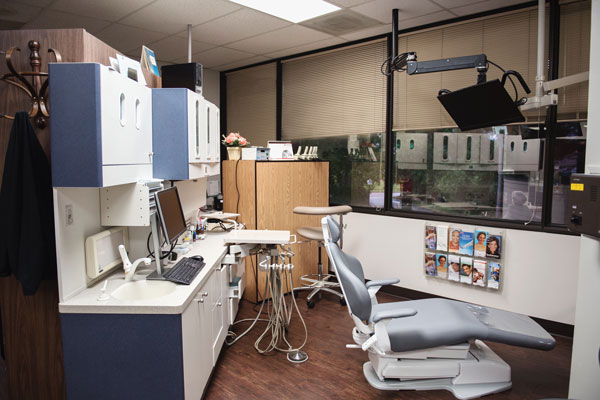At Conroe Dental Associates, we want you to be informed about your oral health. When you visit with Dr. Gina Khong, she will listen to your concerns or questions and answer them to the best of her ability. However, you may have additional questions come up after your visit. If so, you are free to call us at 936-756-9884, or you can review our FAQs page. We want to help you and your family feel comfortable with your dental care. If you have any other questions, or if you would like to schedule an appointment with our knowledgeable dentist in Conroe, Texas, please do not hesitate to contact us today!
Why is it important to have regular cleanings at the dentist?
When you visit our practice for a dental cleaning, we do more than just clean your teeth. Brushing and flossing are vital parts to maintaining a clean, healthy mouth, but everyone needs a little more than that. Our hygienists will remove soft plaque in places you may have missed. This thorough cleaning is essential to preserve your natural teeth, and it can only be done at a dental office.
Does the doctor check for oral cancer?
In short, yes. Dental professionals are your first line of defense when it comes to detecting and treating oral cancer. Oral cancer has been on the rise for many years, and it takes the life of one person every hour of every day — and that’s just in the United States. The good news is that oral cancer has an 80% to 90% cure rate. By regularly visiting our dentist and receiving oral cancer screenings, we can help catch and treat abnormalities early on.
Is fluoride bad for you?
In small amounts, fluoride is fine. However, excessive amounts of fluoride can cause irregularities to appear in your tooth enamel. Young children are especially susceptible to these effects as their teeth are still developing. Parents should supervise their children brushing their teeth to ensure that they do not swallow too much toothpaste. Also, a pea-size drop of toothpaste is more than enough for both adults and parents.
My child likes to chew ice. Is this harmful?
Tooth enamel is hard, but that doesn’t mean it can’t be broken. To keep your tooth enamel intact, try to avoid eating hard foods such as ice and popcorn. Also, don’t use your teeth to open things such as nut shells or packages.
Why are soft drinks bad for your teeth?
Sugar and acid are your tooth enamel’s worst enemies. These substances soften tooth enamel and make it more susceptible to decay. Soft drinks and other foods (such as energy drinks, candy, and fruit juices) have a high acidic content and can quickly eat away at your tooth enamel, especially if they are frequently consumed. Children are more susceptible to developing tooth decay from highly acidic and sugary foods because their enamel has not yet developed fully. By reducing or eliminating sugary or acidic foods, you can help protect your teeth. You can also chew sugar-free xylitol gum, rinse your mouth with mouthwash, or brush your teeth after meals.
What can I do about grinding my teeth at night?
Bruxism is the condition where you grind or clench your teeth while sleeping. Consistent grinding or clenching can damage your teeth, causing them to become shorter or even cracked. Bruxism can also affect your jaw joint, which can cause headaches, affect your hearing, and lead to other side effects. Our dentist can help eliminate these side effects by recommending a night guard or other oral appliances.
What is TMJ disorder?
TMJ stands for “temporomandibular joint,” which is your jaw joint. TMJ disorder (TMD) refers to when your jaw joint aches, is tender, or brings discomfort. There are many signs of TMD, including jaw ache or stiffness, ache in or around the ears, headaches, difficulty opening or closing the mouth, clicking or popping sounds when moving the jaw, and more. TMD can be treated in a variety of ways. Our dentist can evaluate your condition and provide the treatment that is best for you.



















